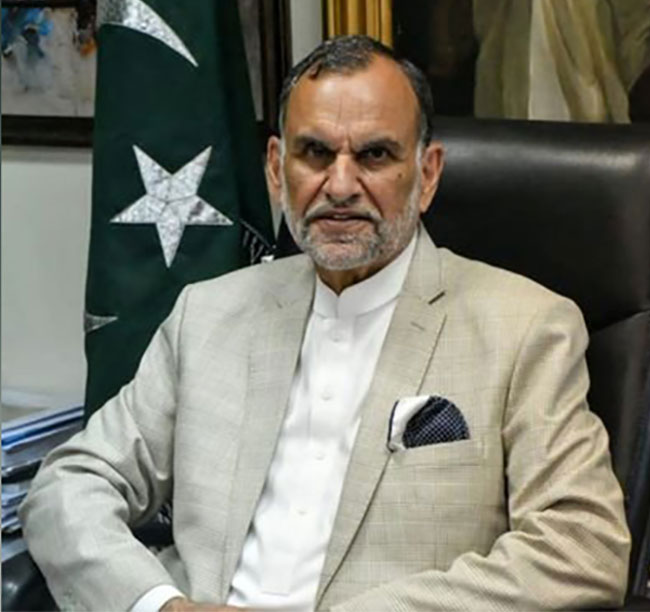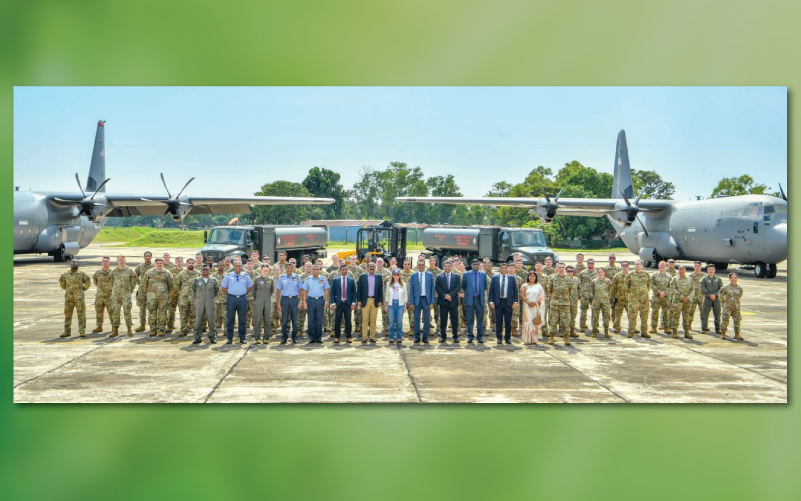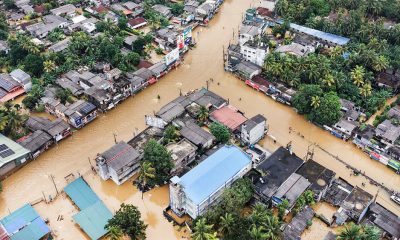News
Maldives leader calls for attack on Indian embassy, govt orders probe

The government of the Maldives launched an investigation after a man allegedly linked to the island nation’s former president Abdulla Yameen’s party took to Twitter and called for an arson attack on the High Commission of India in Malé, said a report published by the Deccan Herald yesterday.
The DH report said: Abbas Adil Riza, who earlier held official positions in the Maldivian government, tweeted on December 23 that the February 8, 2012, arson attack in Addu City in the Indian Ocean nation was ordered by India. He said that the damage caused by the had not yet been compensated. “I think we should start with the embassy,” he tweeted with the hashtag ‘India Out’.
Yameen and his Progressive Party of the Maldives (PPM) have been running an ‘India Out’ campaign, opposing the role of India in infrastructure development in Maldives.New Delhi suspects that the campaign is being tacitly supported by Pakistan and China. “The government strongly condemns the incitement of arson and terrorism targeted at the High Commission of India in the Maldives,” the office of Maldives President Ibrahim Mohamed Solih stated.
“The government is investigating this threat very seriously, and all necessary precautionary measures have been taken by the authorities. Such threats of malicious intent aimed at undermining the security of the diplomatic corps and disrupting public safety will not be tolerated,” it said.
The ruling MDP and several other political parties also condemned Riza’s call for the arson attack on the High Commission.The MDPhas condemned the call for an arson attack on the Indian High Commission and calls on the authorities to investigate the matter. The MDP also condemns the opposition’s continuous effort to incite violence and hatred towards friendly nations.
Security has been beefed up around the High Commission as a precautionary measure.Earlier on June 21st, during Yoga day celebrations a mob had entered the stadium where officials of the Indian High Commission were present and created an uproar.
The opposition party has been propagating the India Out campaign for a while now, as they had a pro-China stand.Yameen had put the Maldives in a debt trap by awarding contracts to the state-owned companies of China to build several infrastructure projects, mostly on unsustainable loan terms.
Though Beijing’s influence over his regime had resulted in strains in New Delhi’s relations with Malé, it saw a reset after Solih and former Maldives President Mohamed Nasheed led the Maldivian Democratic Party to victory in the November November 2018 elections. The next presidential elections in the Maldives will be held in 2023.
News
President calls on Atamasthanadipathi Thero

President Anura Kumara Dissanayake called on the Atamasthanadhipathi, Chief Sanghanayake of Nuwara Kalaviya, Most Venerable Pallegama Hemarathana Nayake Thero, this morning (07) for a brief discussion.
During the meeting, the President apprised the Thero of the measures being implemented by the government to provide relief to the affected people and to restore normalcy in their daily lives.
News
US deploys two C-130J Super Hercules aircraft and personnel to assist in relief measures

The United States has extended humanitarian assistance to Sri Lanka to support nationwide relief efforts in the aftermath of Cyclone Ditwah, which caused severe damage across multiple regions of Sri Lanka.
The latest round of assistance, included the deployment of two C-130J Super Hercules aircraft, equipment and US Air Force personnel. The US contingent will provide vital transportation and logistics support in areas identified by the Disaster Management Centre.
A formal handover took place this afternoon (07) at the Bandaranaike International Airport (BIA) with the support officially received on behalf of the Sri Lankan government by Minister of Science and Technology Prof. Chrishantha Abeysena, Deputy Minister of Ports and Civil Aviation, Janitha Ruwan Kodithuwakku and Deputy Minister of Defence Maj. Gen. Aruna Jayasekara (Rtd).
The assistance was presented by the United States through Julie Chung, Ambassador of the United States to Sri Lanka, and Lt. Col. Van Pinxteren of the United States Air Force.
As part of the support package, the United States contingent will provide logistics capacities needed to transport humanitarian supplies to affected communities in the Northern, Eastern and Central regions.
Sri Lankan officials expressed their gratitude for the timely support, which will bolster ongoing national efforts to reach displaced families and restore essential services in cyclone-affected areas.
Latest News
Government prepares Anuradhapura farmers for Maha Season

President Anura Kumara Dissanayake instructed officials to prepare the farmers in the Anuradhapura District whose paddy cultivation was destroyed due to floods to re-cultivate during the upcoming Maha season.
Highlighting the need for all relevant institutions to work in proper coordination, treating this as a national necessity, the President instructed the authorities to provide compensation to farmers without delay and to ensure temporary irrigation water supply through provisional repairs.
The President further noted that the government is providing the highest amount of compensation in the country’s history for crop damages, with the expectation that cultivation activities will be commenced again promptly.
President Anura Kumara Dissanayake gave these instructions this morning (07) while attending a special coordination committee meeting at the Anuradhapura District Secretariat to review the programme being implemented to restore normalcy to the lives of people affected by the disaster situation and to rehabilitate damaged infrastructure in the district.
The President instructed officials to present, before this Friday, a report detailing the number of farmers who were completely affected, the extent of damaged farmland and the required financial allocations. He emphasised that compensation must be granted only to those who are genuinely entitled and that no one should receive it unjustly.
The President stated that the government is committed to providing compensation to the farming community and directed officials to foster confidence among farmers so that they will be encouraged to resume cultivation.
The President also inquired, separately, from the relevant institutions about the measures taken for the development of the district’s infrastructure including highways, irrigation and communication networks.
The President examined the programme for reopening obstructed roads and instructed that temporary repairs be expedited to meet the public’s transportation needs until permanent road development plans are implemented.
Officials of the Ceylon Electricity Board informed the meeting that 473 out of the 580 electricity transformers damaged due to the disaster have already been restored and that full electricity supply to the district could be achieved by tomorrow.
They further stated that 49,000 water connections had been affected, of which about 99% have now been restored, while water is being supplied by bowsers to the remaining areas. They noted that total restoration of water supply is expected within the next two days. Damaged community water projects are also being restored.
Well-cleaning activities are currently being carried out with the support of the Navy and the President instructed officials to complete these tasks swiftly through community participation coordinated by Divisional Secretariats.
Discussions were also held regarding the provision of compensation for crops such as Maize, restarting cultivation, restoring the livelihoods of those engaged in animal husbandry, normalising health services and rehabilitating religious sites including damaged temples.
The floods have caused total damage to 228 houses in the district. The President instructed officials to gather accurate information on whether affected families should be resettled on the same land or relocated elsewhere and to begin identifying suitable land for resettlement.
Officials reported that all schools in the district could reopen by 16 December. The President instructed that the Rs. 15,000 allowance promised by the Treasury for schoolchildren affected by the disaster be fully distributed before 31 December and that the list of beneficiaries be prepared without delay.
The President also expressed his gratitude to government officials, the Police and the Tri-Forces for their service in providing relief to the public and restoring infrastructure.
The meeting was attended by Co-Chair of the Anuradhapura District Development Committee, Minister of Trade, Commerce, Food Security and Cooperative Development Wasantha Samarasinghe, Minister of Housing, Construction and Water Supply Susil Ranasinghe , Anuradhapura District MPs Susantha Kumara Navaratna and Sena Nanayakkara, North Central Province Governor Wasantha Jinadasa, Chief Secretary J.M.R.P. Jayasinghe, representatives of local authorities; Secretary to the Treasury Dr Harshana Suriyapperuma, Anuradhapura District Secretary K.G.R. Wimalasuriya, ministry secretaries and other government officials.
-
News5 days ago
Lunuwila tragedy not caused by those videoing Bell 212: SLAF
-

 News4 days ago
News4 days agoLevel III landslide early warning continue to be in force in the districts of Kandy, Kegalle, Kurunegala and Matale
-

 Latest News6 days ago
Latest News6 days agoLevel III landslide early warnings issued to the districts of Badulla, Kandy, Kegalle, Kurunegala, Matale and Nuwara-Eliya
-

 Features6 days ago
Features6 days agoDitwah: An unusual cyclone
-

 Latest News7 days ago
Latest News7 days agoUpdated Payment Instructions for Disaster Relief Contributions
-

 News2 days ago
News2 days agoCPC delegation meets JVP for talks on disaster response
-

 Business2 days ago
Business2 days agoLOLC Finance Factoring powers business growth
-

 News2 days ago
News2 days agoA 6th Year Accolade: The Eternal Opulence of My Fair Lady













